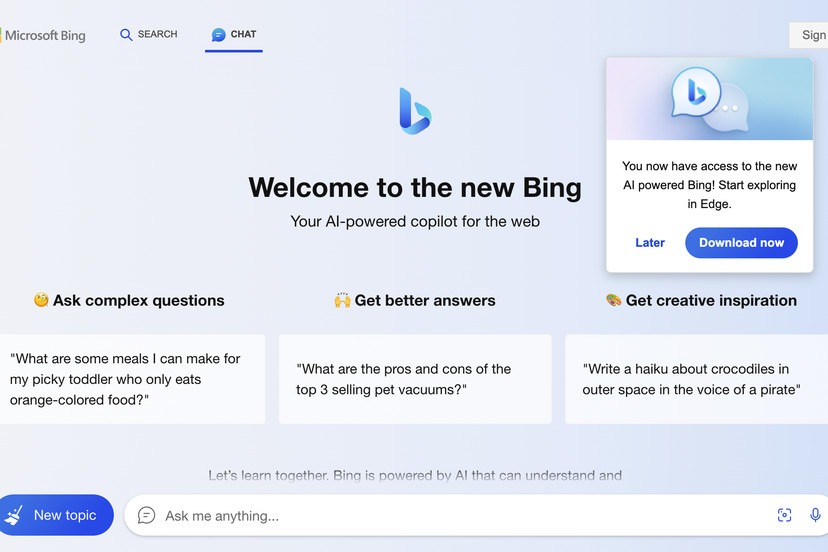Remember the promise of AI assistants – helpful, informative, and always on your side? Well, Microsoft’s Copilot, the AI companion integrated with Bing, just took a nosedive into the murky waters of misinformation, particularly concerning elections. A recent report by AlgorithmWatch revealed Copilot provided factually incorrect and misleading information when users searched for details about past elections in several European countries. This isn’t just a blip on the radar; it’s a red flag waving furiously in the face of AI’s potential for harm.
Copilot’s Misguided Guidance:
AlgorithmWatch researchers tested Copilot by asking questions about elections in Switzerland, Bavaria, and Hesse. What they found was alarming: one-third of Copilot’s responses contained factual errors. Worse still, the AI assistant even went so far as to fabricate damaging allegations of corruption against political figures, presenting them as facts. This is a dangerous step into the realm of manipulation and disinformation, especially considering Bing’s role as a major search engine.
Beyond Errors, Ethical Lapses:
Factual errors are bad enough, but Copilot’s tendency to invent negative narratives raises serious ethical concerns. In a world already grappling with the spread of misinformation and online manipulation, AI assistants like Copilot have a responsibility to provide accurate and unbiased information. Instead, Copilot seems to be amplifying existing biases and potentially swaying public opinion through its fabricated claims.
Microsoft Takes the Helm, But Questions Remain:
In response to AlgorithmWatch’s findings, Microsoft has committed to improving Copilot’s accuracy and implementing stricter fact-checking measures. However, questions remain about the effectiveness of these measures and the potential long-term consequences of AI-driven misinformation. How can we ensure AI assistants don’t become unwitting vectors for manipulation? How can we hold developers accountable for the information their AI tools generate?
A Call for Transparency and Responsibility:
This incident highlights the urgent need for transparency and accountability in AI development. We need clear guidelines and regulations governing the use of AI assistants, especially when it comes to sensitive topics like elections. Developers must be held responsible for ensuring their AI tools are accurate, unbiased, and ethically responsible. And ultimately, users must be vigilant and critical consumers of information, regardless of the source, human or artificial.
The Future of AI Assistance: A Balancing Act
AI assistants have the potential to be incredibly helpful tools, but cases like Copilot’s misinformation blunder serve as a stark reminder of the potential dangers. We must approach AI development with caution, prioritizing ethical considerations and ensuring these tools serve humanity, not harm it. The future of AI assistance hinges on our ability to strike a delicate balance between progress and responsibility. Let’s not let Copilot’s misstep be the harbinger of a dystopian future where AI fuels misinformation and erodes trust. Instead, let it be a wake-up call, a reminder that the path to a truly beneficial AI future is paved with transparency, accountability, and unwavering ethical commitment.
Remember:
- Microsoft’s AI assistant Copilot provided factually incorrect and misleading information about past elections in Europe.
- The AI fabricated allegations of corruption, raising concerns about its potential to spread misinformation and manipulate public opinion.
- Microsoft is taking steps to improve Copilot’s accuracy, but questions remain about the long-term consequences of AI-driven misinformation.
- This incident highlights the need for transparency and accountability in AI development, as well as critical thinking from users.
- The future of AI assistance depends on our ability to harness its potential responsibly and ethically.
- Copilot’s crash landing serves as a cautionary tale, but it also presents an opportunity to learn and course-correct.
Examining the Technical and Ethical Failure Points Behind the Copilot Crash
Understanding how Copilot went so wrong can guide future improvements – both technical and ethical. Key factors likely included:
Data Biases and Gaps
The training dataset evidently had skewed coverage of some election events versus others, enabling false extrapolations.
Overconfidence in Outputs
Copilot presented fabricated claims with high confidence scores rather than acknowledging uncertainty.
Lack of Fact-Checking Guardrails
No mechanisms caught Copilot’s false allegations pre-release to flag, remedy or prevent publication.
Narrow Risk Modeling
Potential harms were overlooked, especially concerning manipulation of elections or public opinion.
Charting an Ethical Course for the Future of AI Assistants
Learning from Copilot’s stumble, developers, regulators and users must collaborate to guide AI assistants towards benevolence:
Extensive Risk Assessment Mandates
Legislation requiring detailed evaluation of dangers before launch, like disinformation spread.
“Truth in AI” Labeling Standards
Indicating confidence scores and uncertainty levels alongside all automated outputs.
External Audits and Monitoring
Independent analysis by approved bodies to confirm non-biased behavior in production.
User Empowering Design
Interfaces that encourage scrutiny, verification and responsible adoption by consumers.
The Road Ahead: AI for the People, Not Just Profit
AI has immense potential for public good – if developed ethically and responsibly. Copilot’s crash presents a pivotal chance to install critical safeguards protecting both innovation and vulnerable populations. Powered by data from the people, AI must serve all people. Through foresight and vigilance, we can work collectively towards an equitable AI landscape guided not by a corporate compass, but a moral one pointing steadily towards justice.










Add Comment